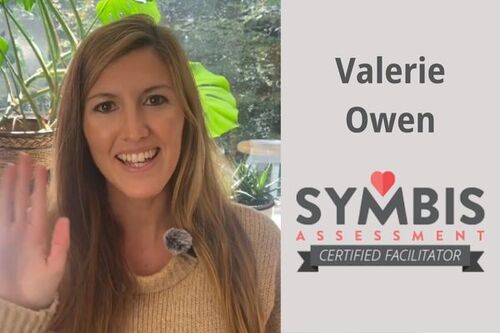What is the SYMBIS Assessment?
If you are serious about investing in your marriage, you will follow the example of Chris and Toni and take the SYMBIS Assessment. The assessment will reveal differences and similarities in the way you and your partner approach the most important components of a marriage relationship.
How it Works
1. Sign up for the SYMBIS Assessment Counseling Series.
2. Your counselor will send each partner a link to take the assessment online. Each partner should answer the questions independently.
3. For the next 10 weeks, you and your partner will meet the counselor to discuss the results of your assessment.
2. Your counselor will send each partner a link to take the assessment online. Each partner should answer the questions independently.
3. For the next 10 weeks, you and your partner will meet the counselor to discuss the results of your assessment.
What Topics Will Be Covered?
- Your marriage momentum. This metric evaluates the mindset and commitment you have towards your marriage.
- Individual Wellbeing. Your marriage can only be as good as the wellbeing of the individuals, specifically of the spouse with the less healthy well-being. Learning to take time to maintain your own personal wellbeing as well as to build one another up is an important aspect of married life.
- Social Support. In this section, we talk about how well connected you are as individuals.
- Finances. Money can be a major cause of disagreement in any relationship. It is important to understand how your spouse things about money and how you can work together to manage it responsibly.
- Expectations. This section examines the division of labor in your home growing up and encourages you to discuss how responsibilities will be divided in your own home.
- Remarriage and Blending a Family. This section is for those who have already been married before and/or have children from previous relationships.

7. Dynamics. We will look at your personality types and how they will interact in a marriage.
8. Love. How do you and your partner define love? This section also covers some expectations regarding sexual intimacy.
9. Attitude. How resilient are you and your partner when facing challenges?
10. Communication. What is your communication style and how can you work to maintain healthy communication?
11. Gender. In this section, we go over some core differences between men and women and how to better relate to one another.
12. Conflict. Every couple will have conflict at some point. We learn how to handle conflict and what the most likely causes of conflict will be in your relationship.
13. Spirituality. Being on the same page spiritually or understanding how your spouse feels closest to God is covered in the final meeting.
8. Love. How do you and your partner define love? This section also covers some expectations regarding sexual intimacy.
9. Attitude. How resilient are you and your partner when facing challenges?
10. Communication. What is your communication style and how can you work to maintain healthy communication?
11. Gender. In this section, we go over some core differences between men and women and how to better relate to one another.
12. Conflict. Every couple will have conflict at some point. We learn how to handle conflict and what the most likely causes of conflict will be in your relationship.
13. Spirituality. Being on the same page spiritually or understanding how your spouse feels closest to God is covered in the final meeting.
